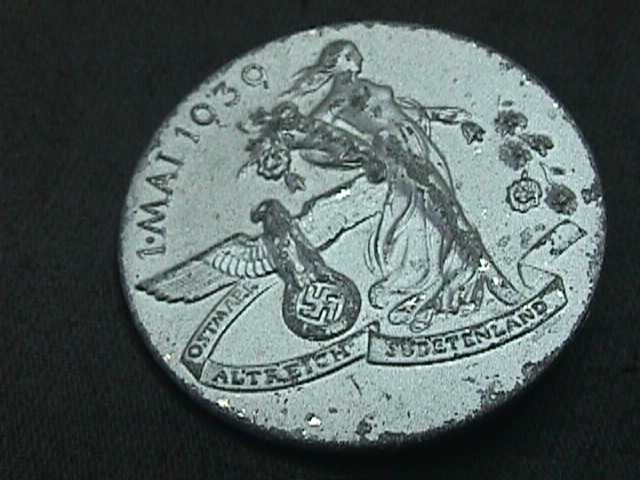 |
| Trier is in the gray area #21. |
The story of Manfred Klepper, a boy who lived in Trier Germany, at the beginning of the Holocaust continues.
After the Kristallnacht, life for the Jews of Trier became more and more difficult. "Dirty Jew" was painted in red on Jewish homes and Jewish owned businesses were also labeled. German businesses were labeled as German owned, to encourage people to buy only from them.
Manny Klepper, six years old at the time, witnessed the results of Kristallnacht on his home, was not permitted to attend school at all. His family rarely left the house in 1939, and in 1940 they never went out. Manny's sister, Charlotte, ten years older than Manny, was called "dirty Jew" by her classmates, starting in 1933, shortly after the Nazi Party took control of Germany.
Manny's father, Morris, was rarely at home in the evening in 1938--Manny was told that he was out playing cards. By 1939, he was not at home at all. Manny had no idea where he was or what he was doing. Many years later, he found that his father was working with the resistance. Morris rarely talked about his experiences, and when he did, he revealed very little information.
 |
| Advertising Poster for a Rally in Frankfurt 1936 |
After 1933, the Jews of Trier began to leave. In 1925 there were over 800 Jews in Trier, by 1939 just over 200 were left. The Nazis made it difficult for them to leave, and this was compounded by the fact that very few countries were willing to receive them. Manny's family was more fortunate than others since Manny's uncle was related to the Governor of Illinois, Henry Horner, they were able to get help obtaining American visas. They also had family who were naturalized citizens of the United States. In May of 1938, the papers finally came through for Manny's sister, Charlotte and their grandparents. They were given four months to get their affairs together and leave. However, a friend warned them that they shouldn't wait, and encouraged them to leave as soon as possible. It was rumored that Hitler's armies were planning to invade the Sudetenland, a part of Czechoslovakia with many German residents. If this happened, there would be war, making it impossible for anybody to leave. Charlotte and her grandparents quickly settled their affairs and left, crossing the border to Luxembourg in a cab. They were safer in that country, but they were not truly safe until they boarded the American steamship that took them to the United States. Once they were on the ship, they were considered to be in America.
 |
| Tin button commemorating Nazi German conquests in Europe including the Sudetenland |
There were no exit visas for Manny and his parents. Conditions were worse in 1939 since the SS and Gestapo controlled Trier. Manny and his mother rarely left the house, and Morris was never home. In March of 1939, The SS came to everyones' house in the neighborhood of Paulinestrasse, ordered them outside and closed down the area. The people were told to come to the red painted wall surrounding the convent behind the Klepper home. (The nuns from this convent had helped the Kleppers clean up after Kristallnacht.) Five people were standing against the wall. They included the Mother Superior of the convent, the Priest assigned to the convent, a Rabbi and two other people who were accused of hiding and aiding British airmen from the RAF. There were several trucks and soldiers standing around. On command, the tarp was lifted from one of the trucks, and a squad of soldiers was revealed. They were ordered to shot. The trucks sped away, leaving the bodies on the ground. Manny was told to go home, his mother stayed behind to help carry the bodies into the convent.
The Kleppers were working desperately to get their exit papers from Germany and visas for the United States. Finally in 1940 the papers came through.
Manny Klepper's story continues next week.
 |
| American Newspaper headline 1939 |
Manny Klepper is my brother-in-law, and speaks about his experiences in Germany in his community.
No comments:
Post a Comment